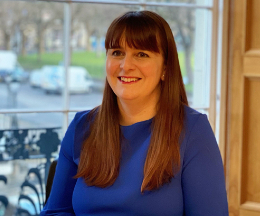Murray Beith Murray LLP is a leading Scottish private client law firm.
For 175 years we have specialised in meeting the legal, financial and administrative needs of individuals and families, family trusts, charities and private companies.
Murray Beith Murray LLP is a leading Scottish private client law firm.
For 175 years we have specialised in meeting the legal, financial and administrative needs of individuals and families, family trusts, charities and private companies.
 If you are considering setting up a trust in Scotland, we understand that you may have some questions. Trusts can be a useful means of protecting family wealth, providing for loved ones, and mitigating your inheritance tax liability. However, it is important you understand how to choose trustees, and that those trustees understand their obligations. This article provides an overview of some questions about trustees in Scotland.
If you are considering setting up a trust in Scotland, we understand that you may have some questions. Trusts can be a useful means of protecting family wealth, providing for loved ones, and mitigating your inheritance tax liability. However, it is important you understand how to choose trustees, and that those trustees understand their obligations. This article provides an overview of some questions about trustees in Scotland.
You can choose to appoint almost anyone as a trustee so long as they meet certain requirements. A trustee must be aged over 18, be resident in the UK, financially solvent, and of sound mind and judgment. You can also choose to appoint a corporate trustee, and many people choose to use a law firm. Typically, people choose people they trust, including family members, friends, business partners, or trusted professional advisors. Any trustee that you choose must accept their appointment in order for it to be valid.
Those setting up the trust and adding assets to it are known as ‘settlors’ and it is common for a settlor to also be a trustee - at least in the beginning - to give them an element of control over how the trust is run.
A trust must have at least one trustee (in addition to the settlor, if the settlor chooses to take on this role as well) in order to be valid under Scots law. It also makes practical sense, as many people set up a trust as a part of estate planning, and appointing additional trustees ensures that the trust can continue to operate after death. Having an odd number of trustees ensures the trust does not end up in a “stalemate” position as actions can take place with the agreement of a majority of trustees.
There is no legal limit to the number of trustees that may be appointed, however from a practical point of view, you should not appoint too many. As trustees need to agree on decisions made in relation to the trust, having too many trustees could hold up administrative matters.
Trustees have specific legal duties they must comply with, including:
Kathryn Johnston is an Associate within Murray Beith Murray Asset Protection group, and is a trust specialist. If this article has raised any questions or you would like to discuss an estate planning matter, then please complete our contact form, or call us on 0131 225 1200.
Murray Beith Murray was established in 1849 as advisors for generations of clients, committed to our values of integrity, expertise and trust. This aim and these values continue to this day, as does our commitment to be here when you need us.
